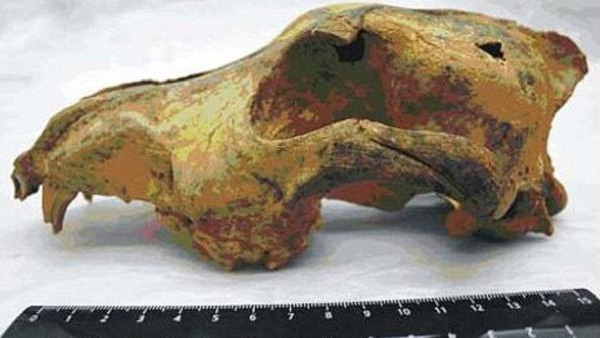| Canine Fossil Suggests Dogs were Domesticated 33,000 Years Ago IANS | |
| go to original March 31, 2013 |
|

Analysis of a canine fossil discovered in Siberia's Altai Mountains reveals an animal more like a modern dog than a wolf, according to an article in the science journal PLOS ONE.
Though dogs were part of human society by around 10,000 years ago, exactly when wild canines began living with people is a matter of dispute.
Anna Druzhkova and her colleagues from the Russian Federation's Institute of Molecular and Cellular Biology extracted DNA from the Altai fossil and compared it with samples from modern dogs, wolves and coyotes and with genetic material recovered from prehistoric canines in the Americas.
The Altai canine was more closely related to modern dogs than to modern wolves, the researchers found.
The only other known specimen of an early dog is the 36,000-year-old Goyet dog, discovered in Belgium.
Prevailing wisdom has been that dogs were first domesticated in the Middle East or East Asia, but the Altai dog, if truly a domestic animal, points to wider possibilities.
"Additional discoveries of ancient doglike remains are essential for further narrowing the time and region of origin for the domestic dog," the Russian researchers said.
We invite you to add your charity or supporting organizations' news stories and coming events to PVAngels so we can share them with the world. Do it now!
Celebrate a Healthy Lifestyle
 From activities like hiking, swimming, bike riding and yoga, to restaurants offering healthy menus, Vallarta-Nayarit is the ideal place to continue - or start - your healthy lifestyle routine.
From activities like hiking, swimming, bike riding and yoga, to restaurants offering healthy menus, Vallarta-Nayarit is the ideal place to continue - or start - your healthy lifestyle routine.